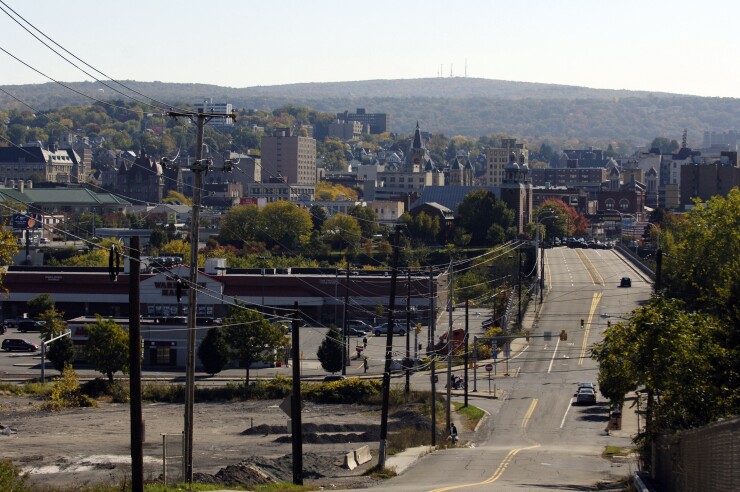An appellate court dismissed Scranton’s appeal of a ruling that the city’s home-rule charter does not supersede a state cap on tax collection.
The Commonwealth Court of Pennsylvania's ruling means the case will return to the Lackawanna County Court of Common Pleas, where Judge James Gibbons will make a final determination. Gibbons in October

In a decision that could cost the distressed city about $50 million, Gibbons ruled in favor of eight taxpayers led by independent mayoral candidate Gary St. Fleur, who argued that Scranton has been collecting taxes beyond the legal limit.
The group filed the lawsuit in March and Gibbons held a hearing in Scranton on May 30.
The city maintained that Scranton’s home-rule charter exempts it from taxation limits under Pennsylvania’s Act 511, a so-called local tax enabling act.
“Whether it does is immaterial because Act 511 clearly and indisputably applies to the city of Scranton,” Gibbons said in October. “Act 511 denies Scranton the right to repeatedly levy and collect taxes in excess of its prescribed cap without taking further steps. As such, we will not change our conclusion that the home rule charter law is subservient to Act 511.”
St. Fleur expects Gibbons’ final determination to be a formality.
“This means that the judge, who already agrees with the cap, can now impose it on the city,” he said.
St. Fleur said the case could
Moody’s Investors Service has called the original ruling a
Scranton, a 76,000-population county seat in northeast Pennsylvania, raised the levy from $52 to $156 for every person working within the city limits who earns at least $15,600. City officials called the tax increases essential for their recovery under the state-sponsored Act 47 for distressed communities, to which Scranton has belonged since 1992.
Scranton, whose bonds are junk, received a general obligation
The group, consisting of residents and all subject to the local tax, consists of St. Fleur, Nicholas Gettel, Casey Durkin, Damian Biancerelli, Rich Johnson, Ethan Green, Angela Gilgallon and Michele McGovern.





